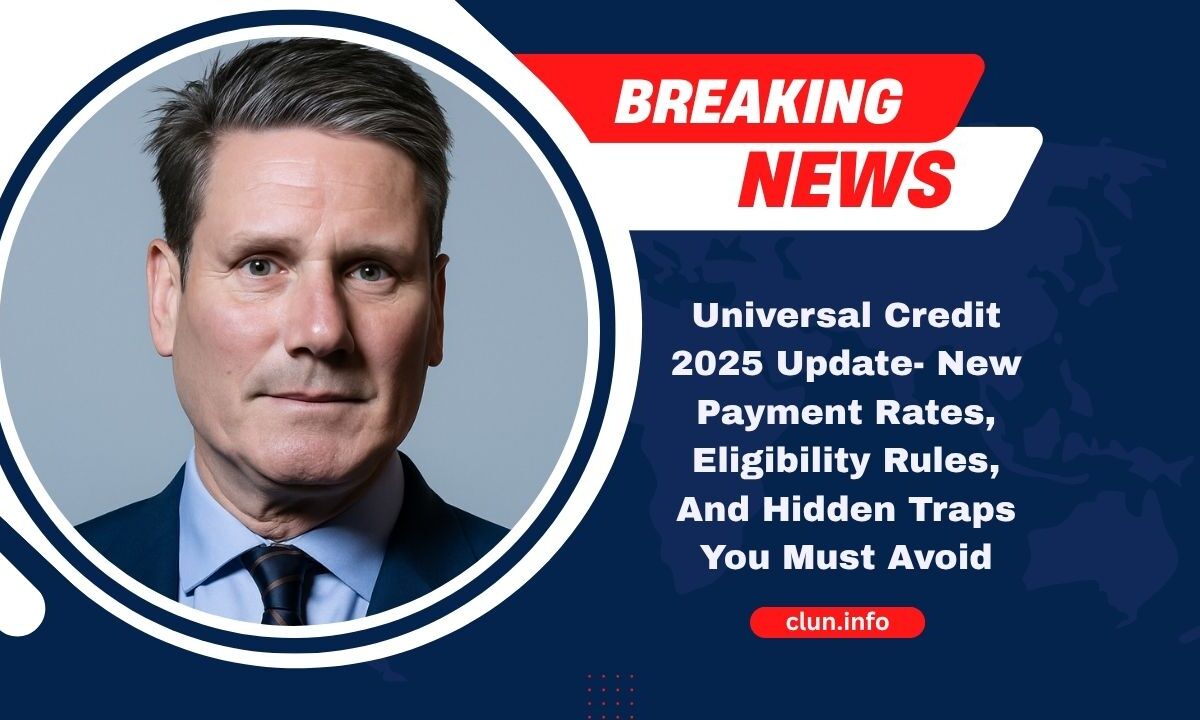Universal Credit in 2025 remains a vital support system for millions of UK residents struggling with rising living costs.
Whether you’re unemployed, working part-time, or dealing with a health condition, Universal Credit (UC) provides monthly payments to help cover housing, childcare, and living expenses.
With new policy updates rolling out this year—including a reduced repayment cap, updated eligibility rules, and enhanced cost-of-living support—it’s crucial to understand what’s changing.
This detailed guide explains who qualifies, how much you’ll receive, and the hidden rules that could affect your benefits in 2025.
What Is Universal Credit?
Universal Credit is a benefit paid monthly (or bi-weekly in Northern Ireland) by the Department for Work and Pensions (DWP). It replaces six legacy benefits with a single payment system:
- Income Support
- Income-based Jobseeker’s Allowance (JSA)
- Income-related Employment and Support Allowance (ESA)
- Child Tax Credit
- Working Tax Credit
- Housing Benefit
It aims to simplify the welfare system and offer tailored support based on household needs.
Who Can Claim Universal Credit in 2025?
To be eligible for Universal Credit in 2025, you must:
- Live in the UK
- Be 18 years or older (exceptions apply for 16–17-year-olds)
- Be under State Pension age
- Have less than £16,000 in savings
- Be unemployed, employed with low income, or self-employed
Special Categories:
- Students with disabilities or dependent children may qualify
- Carers and those with limited capability for work may be eligible
- If living with a partner, joint income and savings are considered
Universal Credit 2025: Standard Payment Rates
| Household Type | Monthly Amount |
|---|---|
| Single under 25 | £316.98 |
| Single 25 or over | £400.14 |
| Couple under 25 | £497.55 |
| Couple 25 or over | £628.10 |
Extra Elements You May Be Entitled To
| Element | Monthly Amount |
|---|---|
| First child (born before July 2017) | £333.33 |
| Additional children | £287.92 each |
| Disabled child addition | £146.31 or £456.89 |
| LCWRA (Limited Capability for Work/Activity) | £416.19 |
| Carer element | £185.86 |
| Housing element | Varies by rent/region |
Budgeting Advance – Interest-Free Loan Support
If you need urgent funds for essentials like moving costs or funeral expenses, you can apply for a Budgeting Advance:
| Situation | Maximum Advance |
|---|---|
| Single | £348 |
| Couple | £464 |
| With children | £812 |
This is repaid through monthly deductions, usually over 24 months. In 2025, the repayment cap has been reduced to 15%, down from 25%, giving claimants more breathing space.
Legacy Benefits Migration Deadline – September 2025
If you still receive legacy benefits, you must switch to Universal Credit by September 2025. Upon receiving a Migration Notice, you have 3 months to apply. Failing to act may result in a complete loss of entitlement.
£800 Cost-of-Living Payment for 2025
To support low-income households, the government is providing £800 in tax-free payments across three instalments in 2025:
- £300 – Spring
- £300 – Summer
- £200 – Autumn
You must be claiming a qualifying benefit (like UC or Pension Credit) during the eligibility period to receive these payments.
Real-World Examples
Emma – Part-Time Worker with One Child
Emma earns minimum wage and rents a flat. She receives:
- Standard Allowance: £400.14
- Child Element: £287.92
- Housing Support: £520
- Budgeting Advance: £300 (repaid monthly)
Total Monthly UC: ~£1,200
Paul & Lisa – Disabled Couple
Both have long-term illnesses. Their UC breakdown:
- Couple Rate: £628.10
- LCWRA (x2): £832.38
- Housing Element: £660
Total Monthly UC: ~£2,120
How to Apply for Universal Credit
Follow these steps to apply:
- Visit gov.uk/universal-credit
- Create an online account
- Submit personal and financial details
- Provide ID, rent info, and bank details
- Book and attend a Jobcentre interview
- Wait up to 5 weeks for your first payment
Mistakes That Could Cost You
- Failing to update your income: Leads to overpayments and future penalties
- Ignoring migration letters: Could result in discontinued support
- Under-reporting savings: Includes ISAs, joint accounts, and second properties
- Missing DWP appointments: Can result in sanctions and delays
The Universal Credit 2025 update introduces crucial changes that benefit claimants through increased support and reduced repayment caps.
However, hidden rules and deadlines make it essential to stay informed. Understanding eligibility, payment components, and how to apply ensures you make the most of this important financial support system.
FAQs
How much will I get from Universal Credit in 2025?
Amounts vary by age, relationship status, children, and housing. A single adult over 25 receives £400.14 monthly, with additional elements available.
What is the deadline for switching from legacy benefits?
You must apply for Universal Credit by September 2025 if you receive a migration letter from DWP.
Can I still apply for Budgeting Advances?
Yes, eligible Universal Credit recipients can apply for interest-free loans up to £812, repaid through monthly deductions.




